If you have sensitive skin the chances are you’ll know all about Sodium Lauryl Sulfate (SLS) and how bad it can be for the skin. It used to be an ingredient in all the eczema and dry skin emollients but is now widely known to be a skin irritant. You’ll see so many products labelled as SLS free.
But what about SLES? Many people wrongly assume these two skincare ingredients are the same or at least in some way related but they’re nothing alike. Read on to find out more…
Understanding the Difference: SLS vs. SLES in Haircare
For those who prioritise conscious beauty and have sensitive skin like yours, it’s essential to be familiar with SLS (Sodium Lauryl Sulfate) and SLES (Sodium Laureth Sulfate), two common ingredients found in many beauty products, especially shampoos. While they share similar names, there is a significant distinction between the two.
What is SLS used for in skincare?
SLS, also known as Sodium Lauryl Sulfate or Sodium Dodecyl Sulfate, is widely used as a surfactant in shampoos. Its purpose is to trap oil-based dirt, allowing it to be washed away with water. Additionally, SLS creates the rich lather we associate with cleansing our hair, giving us a satisfying washing experience.
What does SLS do to sensitive skin and scalps?
It is a known irritant and can lead to dry, cracked, and tender skin, which can be particularly problematic for those with sensitive skin or scalp issues like Topical Steroid Withdrawal (TSW), psoriasis and eczema.
Furthermore, shampoos containing SLS have been linked to hair weakening and loss over time. It can linger in hair follicles, gradually weakening them, which is a concern for individuals seeking stronger and healthier hair. If you use a shampoo with SLS make sure to rinse twice to help avoid the effects.
SLES won’t irritate your scalp and skin
In contrast, Olsson’s Allergy UK approved haircare products contain SLES (Sodium Laureth Sulfate), derived from SLS through a process called ethoxylation. This process makes the compound much gentler on the skin and hair. Unlike SLS, SLES won’t irritate the scalp or strip it of essential moisture, providing a more nurturing and nourishing experience, which I can vouch for!
Why Olsson uses SLES in their skin safe hair care products
Harnessing the benefits of SLES along with other skin-friendly ingredients like Aloe Vera, Pro Vitamin B5, and Glycerine, Olsson have formulated the ultimate “pure performance” haircare collection. This enables all individuals, including those with skin sensitivities, to achieve clean, shiny, and nourished hair.
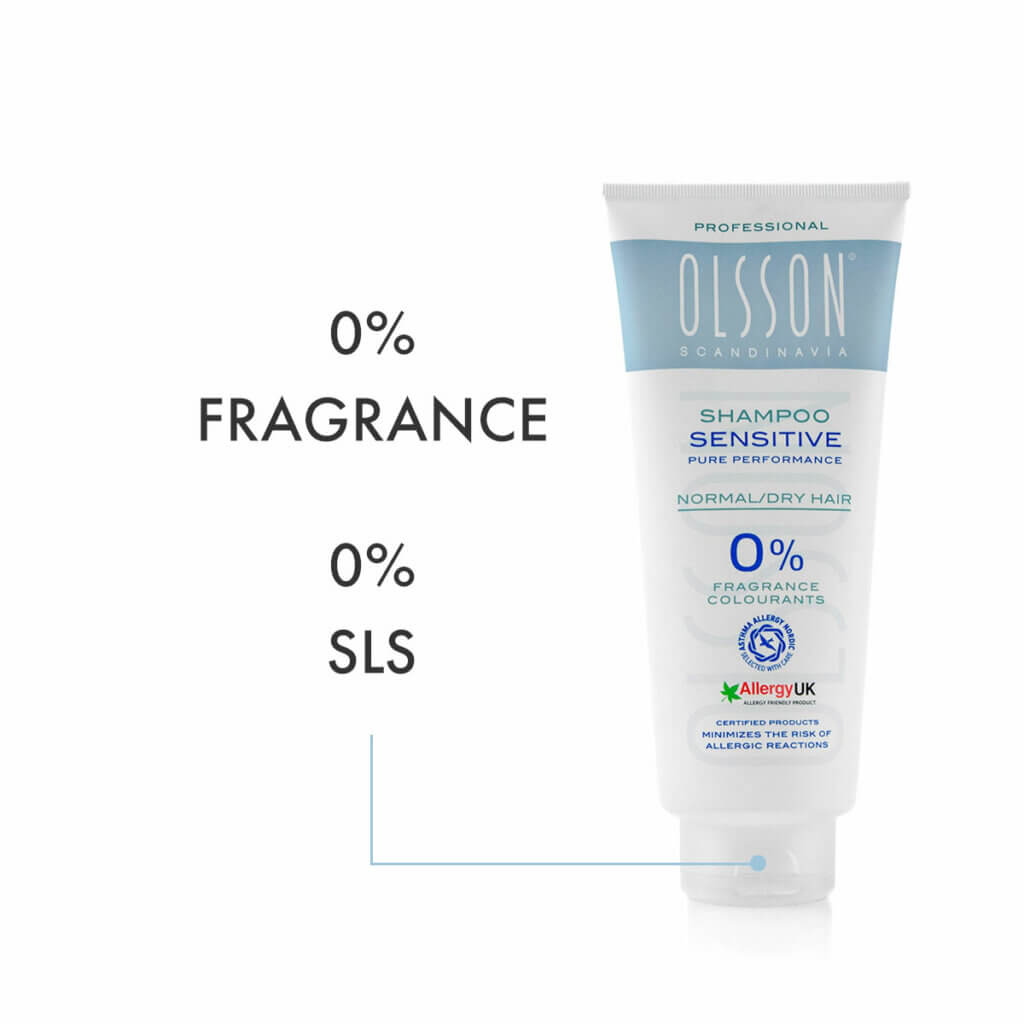
ALWAYS patch test any product you use on sensitive skin
As you will know, the complex nature of allergies and sensitivities means that the brand cannot guarantee that their products won’t irritate, but they do offer a free patch test (all you pay is the postage) – which is a great way to find out if the haircare is right for you and SLES is kind enough for your sensitivity.
ALWAYS patch test before using – To do this, apply a tiny dot of shampoo or conditioner behind your ear, or on your neck under your hair line. Find a spot that’s not visible in case you do react, and make sure you test shampoo on your head or scalp area.
For any enquiries or concerns, Olsson have a dedicated team of experts, including professional Stylists and Chemists, who are eager to provide support and guidance. So, do ask them – in my experience, if they don’t know the answers, they will find out for you.
Get 10% off your first Olsson purchase.
I have an affiliate code that provides 10% off your first purchase – WHATALLERGY10 – just add it at the checkout, please note that I don’t promote anything I wouldn’t or don’t use myself, so feel free to DM me with any questions. Remember you should always patch test first – contact Olsson for sample testers to make sure it’s suitable for your skin, and tell them I sent you!
Comment below if you use Olsson Haircare, I’d love to hear your experience and I’m sure the community would too.
You may also be interested in reading:
- Topical Steroid Withdrawal – Frequently Asked Questions
- Get discounts on eczema and allergen friendly products that I love and use
- Top 10 things that really helped my eczema skin
- Sodium lauryl sulfate – is it safe to use on your skin?
Photo by Matthew Tkocz on Unsplash









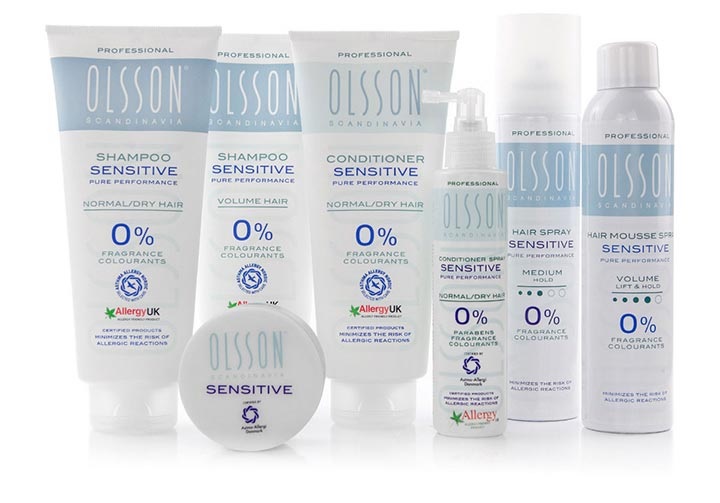
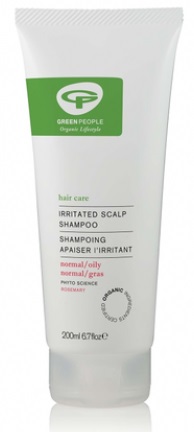
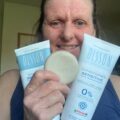
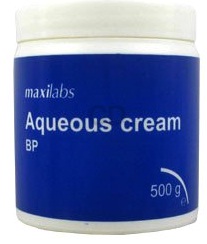
Leave a Reply